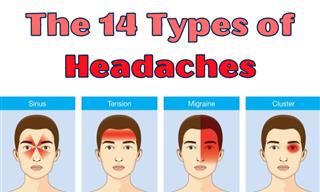In the quest to bolster brain health among the senior demographic, a pioneering study harnesses the symbiotic relationship between gut health and cognitive function. This investigation delves into the realm of dietary supplements, unveiling a simple yet effective strategy to enhance memory capabilities in individuals aged 60 and above.
At the heart of this exploration is the compelling evidence drawn from a twin study, a methodological approach that splendidly isolates genetic from environmental influences on health. Conducted by King's College London, the research spotlighted two inexpensive, widely accessible plant fiber prebiotics: inulin, a fructan class dietary fiber, and fructooligosaccharides (FOS), a plant carbohydrate cherished for its natural, low-calorie sweetness. These substances, typically sidelined in the dietary conversations, are now at the forefront of a potential cognitive health revolution.

Embarking on this scientific journey, the study enrolled 36 pairs of twins over 60, assigning them to either a daily regimen of prebiotic-infused protein powder or a placebo counterpart. The outcomes were telling; twins supplemented with inulin or FOS manifested a notable uptick in cognitive test scores after a mere three-month period. This increment, particularly in visual memory and learning assessments—key markers for early Alzheimer's detection—heralds a promising avenue for mitigating cognitive decline.
Parallel to cognitive enhancements, the study observed nuanced shifts in the gut microbiome, specifically an increase in Bifidobacterium populations among participants receiving prebiotic supplements. This bacterium, previously identified in murine studies for its cognitive deficit mitigating properties through gut-brain axis modulation, underscores the intricate connections tying our digestive systems to brain health.

Mary Ni Lochlainn and Claire Steves, lead researchers at King's College London, echo a sentiment of optimism and caution. They highlight the potential of such dietary interventions in extending cognitive vitality well into older age, while also noting the absence of significant benefits in physical conditions like muscle loss. This dichotomy underscores the complex interplay between diet, microbiome, and overall health, nudging us towards a holistic understanding of aging.
King's College's engagement in twin studies offers a unique lens through which to scrutinize the genetic and environmental determinants of health. These investigations, particularly when focused on the gut-brain axis, illuminate the profound yet largely enigmatic connections between our dietary habits and cognitive faculties.
This study, however, does not stand as a solitary beacon but as part of a burgeoning field of research advocating for the gut's pivotal role in our well-being. Dubbed the body's "second brain," our digestive system's influence stretches across various bodily functions, including the immune and central nervous systems. Through the strategic nurturing of the gut microbiome with targeted prebiotics and probiotics, we stand on the cusp of unlocking therapeutic pathways for an array of conditions, beyond cognitive decline alone.

With the study's publication in Nature Communications, its findings offer a glimmer of hope and a call to action. As we navigate these economically strained times, the accessibility and safety of such plant fibers present an inclusive opportunity for broad demographic benefit. The challenge now lies in sustaining these effects over more extended periods and across diverse populations, a task that the scientific community is poised to tackle with vigor and determination.
 Go to BabaMail
Go to BabaMail



























